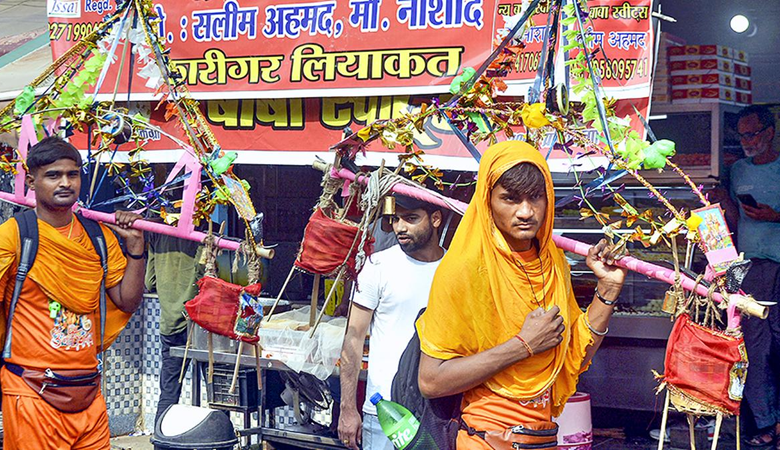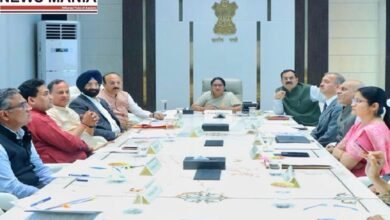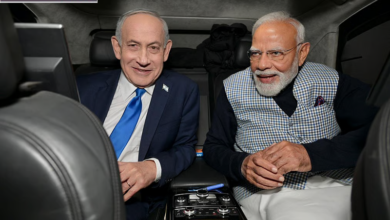Supreme Court Blocks Controversial UP and Uttarakhand Directives on Kanwar Yatra Eateries

News Mania Desk/Agnibeena Ghosh/22nd July 2024
In a significant interim ruling, the Supreme Court on Monday halted the enforcement of Uttar Pradesh and Uttarakhand directives requiring eateries along the Kanwar Yatra route to display the names of their owners. However, the court mandated that these establishments must indicate the types of food they offer to the Kanwariyas, the pilgrims participating in the Yatra.
The Supreme Court’s decision came while hearing multiple petitions challenging the directives, including one from the NGO Association of Protection of Civil Rights (APCR). Last week, authorities in both states issued orders that eateries and food stalls along the pilgrimage route must display the names of their owners, sparking widespread controversy.
A bench comprising Justices Hrishikesh Roy and S V N Bhatti issued a notice to the states of Uttar Pradesh, Uttarakhand, and others along the Yatra route. The bench stated, “Until the returnable date, we deem it appropriate to pass an interim order prohibiting the enforcement of the above directives. Food sellers may be required to display the kind of food they are serving to the Kanwariyas but must not be forced to disclose the names/identities of the owners or employees.”
Senior advocate A M Singhvi, representing one of the petitioners, argued that there was no rational basis for the directive. He contended that revealing the names of employees and owners served no legitimate purpose and accused the police of attempting to sow communal discord through these directives.
Petitions filed by political commentator Apoorvanand and activist Aakar Patel urged the court to demand the withdrawal of the orders. Meanwhile, TMC MP Mahua Moitra accused the Uttar Pradesh government of targeting Muslim-owned businesses, arguing that the directives encouraged discrimination based on caste and religion and lacked any statutory backing.
The pleas highlighted that the directives promoted discrimination by not requiring the display of food items or a statement regarding the nature of the food being served but only the names of the owners, which implicitly revealed their religious or caste identities. This, the petitioners argued, breached Article 15 of the Constitution, which prohibits discrimination on grounds of religion, race, caste, sex, or place of birth.
The petitions further argued that the directives compromised the privacy of shop owners and their employees, exposing them to potential targeting. Moitra’s petition specifically accused the Uttar Pradesh government of creating conditions for the economic boycott of Muslims. It claimed that since June 2023, the state had empowered anti-social elements to target Muslim-owned businesses based on fabricated information, leading to economic marginalization under the guise of dietary concerns.
Moitra emphasized that forcing proprietors and their staff to disclose their names, ostensibly to respect pilgrims’ dietary choices, was a pretext for compelling the disclosure of personal religious identities. This, she argued, facilitated a socially enforced economic boycott of Muslim shop owners and workers, threatening their livelihoods.
The petitions stressed that the state’s duty is to maintain public order without infringing on citizens’ rights to free speech and occupation. By mandating the disclosure of names, the state was effectively abdicating its responsibility and undermining public order, amounting to a “heckler’s veto.”






